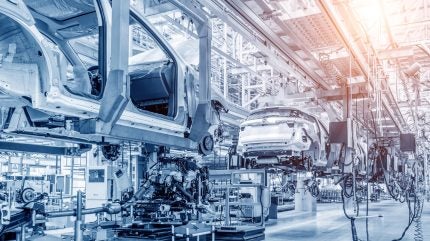
General Motors (GM) is planning to increase production of its light-duty trucks at its assembly plant in Fort Wayne, Indiana in the US, reported Reuters citing a webcast sent to plant employees.
The move follows US President Donald Trump’s decision to impose 25% tariffs on auto imports, aimed at incentivising companies to shift their manufacturing back to the US.
GM CEO Mary Barra previously suggested during the company’s January earnings call that increased domestic production could be a response to the new tariffs.
At that time, Barra said: “From a Mexico perspective, we do build trucks in Mexico and in Canada and in the United States. And so we have the capacity in the United States to shift some of that.”
The Fort Wayne facility is equipped to manufacture Chevrolet Silverado and GMC Sierra trucks, which are also produced at GM’s facilities in Mexico and Canada.
In the webcast, Fort Wayne plant director Dennys Pimenta told employees that the company may schedule additional overtime days to support the increased output.
In a letter to United Auto Workers Local 2209 members, local shop chairman Rich LeTourneau said the Fort Wayne plant would add between 225 and 250 jobs as part of a line-speed increase.
According to a company source, several hundred temporary workers are expected to be hired to support the expanded operations.
To implement the necessary changes, the Fort Wayne plant will halt production from 22 to 25 April.
In response to the GM’s proposal, Indiana Senator Jim Banks said: “Today’s announcement from General Motors is great news for Hoosiers. It hasn’t even been 24 hours and President Trump’s plan is already delivering for working families in Indiana in a big way.”
Last month, GM and Hyundai were reportedly in talks to finalise a partnership that would allow Hyundai to supply two electric commercial van models to GM in North America.
According to Hyundai documents reviewed by Reuters, the South Korean automaker may receive pickup trucks from GM to be sold under the Hyundai brand in return.
The discussions between the two firms also include potential collaborations in areas such as semiconductor procurement, next-generation batteries, and battery materials.



